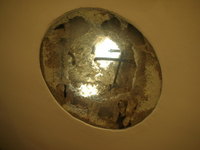On 26 July, Blackboard Inc, which last year took over WebCT, and is the dominant vendor of course management systems, announced that it has been granted a US patent "for technology used for internet-based education support systems and methods", and that patents corresponding to the US patent "have been issued or are pending all over the world including in the European Union, China, Japan, Canada, Australia, Singapore, New Zealand India, Israel, Mexico, South Korea, Hong Kong and Brazil".
Here is an abstract of the patent itself, taken from the US Patent Office record for Patent 6988138.
A system and methods for implementing education online by providing institutions with the means for allowing the creation of courses to be taken by students online, the courses including assignments, announcements, course materials, chat and whiteboard facilities, and the like, all of which are available to the students over a network such as the Internet. Various levels of functionality are provided through a three-tiered licensing program that suits the needs of the institution offering the program. In addition, an open platform system is provided such that anyone with access to the Internet can create, manage, and offer a course to anyone else with access to the Internet without the need for an affiliation with an institution, thus enabling the virtual classroom to extend worldwide.
Unsurprisingly, Blackboard is silent as to whether and if yes how and with (against?) whom it intends to make use of the patent; The day after its announcement, Blackboard filed a patent infringement claim against the Canadian company Desire2Learn [PDF file], hosted at this link by The Inquirer. It will now be interesting to see how much "prior art" is claimed by others in the event that the patent is actually used in anger by Blackboard - the best place at the moment (2/8/2006) to put it and to find it especially the former looks to be this area of Wikipedia. From my own experience, thinking back to the early days of the Learning To Teach On-Line course in 1997 or 1998 (which I and several readers of Fortnightly Mailing had a hand in developing), I seem to recall:
- delivery over the Internet, with materials, tasks/assignments and discussion-board and chat system all accessible by browser;
- browser-based system for amending the materials;
- learners and tutors all over the world, with learners enroled to several of the institutions in the (then) South Yorkshire Further Education Consortium, and tutors employed by several different institutions.
We used the widely available ideas, knowhow, and Open Source and proprietary software that were available at the time, and nothing we did was particularly special. According to the US Patent Office web site, Blackboard's initial patent application was made in 1999.
More recent related Fortnightly Mailing posts include: 25 January 2007 - United States Patent & Trademark Office orders re-examination of Blackboard Patent; 9 December 2006 - Two contrasting views about software patents. A debate between Eben Moglen and Blackboard's Matt Small; 2 December 2006 - Blackboard: two separate re-examination
requests to the US Patent and Trade Mark Office; and an application to the Court from Desire2Learn for a stay in proceedings; 27 October 2006 - EDUCAUSE on Blackboard: "patenting a community creation is anathema to our culture"; 16 October 2006 - John Mayer interviews various lawyers with patent knowhow; 10 September 2006 - The new "post-patent" environment for e-learning: a perspective. Guest contribution by Jim Farmer; 9 September 2006 - Blackboard's work for IMS; 8 August 2006 - Did the US Department of Justice know about the patent when it cleared Blackboard's acquisition of Web CT?; 26 July 2006 - Blackboard's US Patent 6988138.
Minor change made to the final paragraphs: 27/7/2006; bigger changes (indicated by used of strike-out font above: 1/8/2006; link to Wikipedia page added 2/8/2006; link to Desire2Learn court response to Blackboard's patent infringement claim, and to more recent Fortnightly Mailing posts, added 15/9/2006, and 29/10/2006, and 27/1/2007.



Did the US Department of Justice know about the January patent when in February it cleared Blackboard's acquisition of Web CT?
There is an interesting angle in a press release issued on 7/8/2006 by eCollege, a significant US competitor to Blackboard, and picking up on a point also made by John Mayer on 2/8/2006. (Mayer's legally-oriented blog has plenty else on it of interest.) Extract from the eCollege press release:
Of course, not issuing a press release does not mean Blackboard failed to tell the DoJ of its patent: what it does mean is that Blackboard's competitors, who presumably had their eye off the patent ball* - as did the rest of the e-learning community - did not use the existence of the patent to oppose Blackboard's acquisition of WebCT. Which presumably they would have done.
Links
* in fact eCollege looks like its eye has been firmly on the patent ball: see this Open Letter to the Chairman and CEO of eCollege.
Updated with footnote, and further links, 9/8/2006. Attributed link to posting by John Ottaviani, rather than Eric Goldman, 12/8/2006.
Note. Other posts about the Blackboard patent:
Posted on 08/08/2006 in News and comment | Permalink | Comments (0)
|